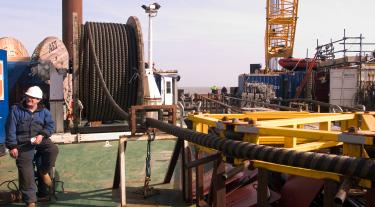Cables are the most frequent, and largest cause of insurance claims for offshore wind developments. To date, the absence of a suitable method of assessing risk management in cable burial has led to a proliferation of approaches from developers. The Burial Protection Index (BPI), which was originally developed for fibre optic communication cables in the 1990’s has been widely applied to the first generation offshore wind farms. However, the BPI has limitations, and as a result is no longer widely used.
The Cable Burial Risk Assessment (CBRA) Guidance offers a standardised, repeatable and qualitative method to improve risk management of subsea cables for offshore wind farms, improve conservative estimates of residual risk, and ultimately reduce the installation and insurance costs for subsea cables.
Application Guide for the Specification of the Depth of Lowering
To aid the implementation of CBRA, an Application Guide for the Specification of the Depth of Lowering explains how the pioneering probabilistic methodology can be applied to real offshore projects based on actual experience from an operational wind farm. This will help designers use the CBRA Guidance to specify the Depth of Lowering and manage associated residual risks to reduce the installation and insurance costs for subsea cables.


